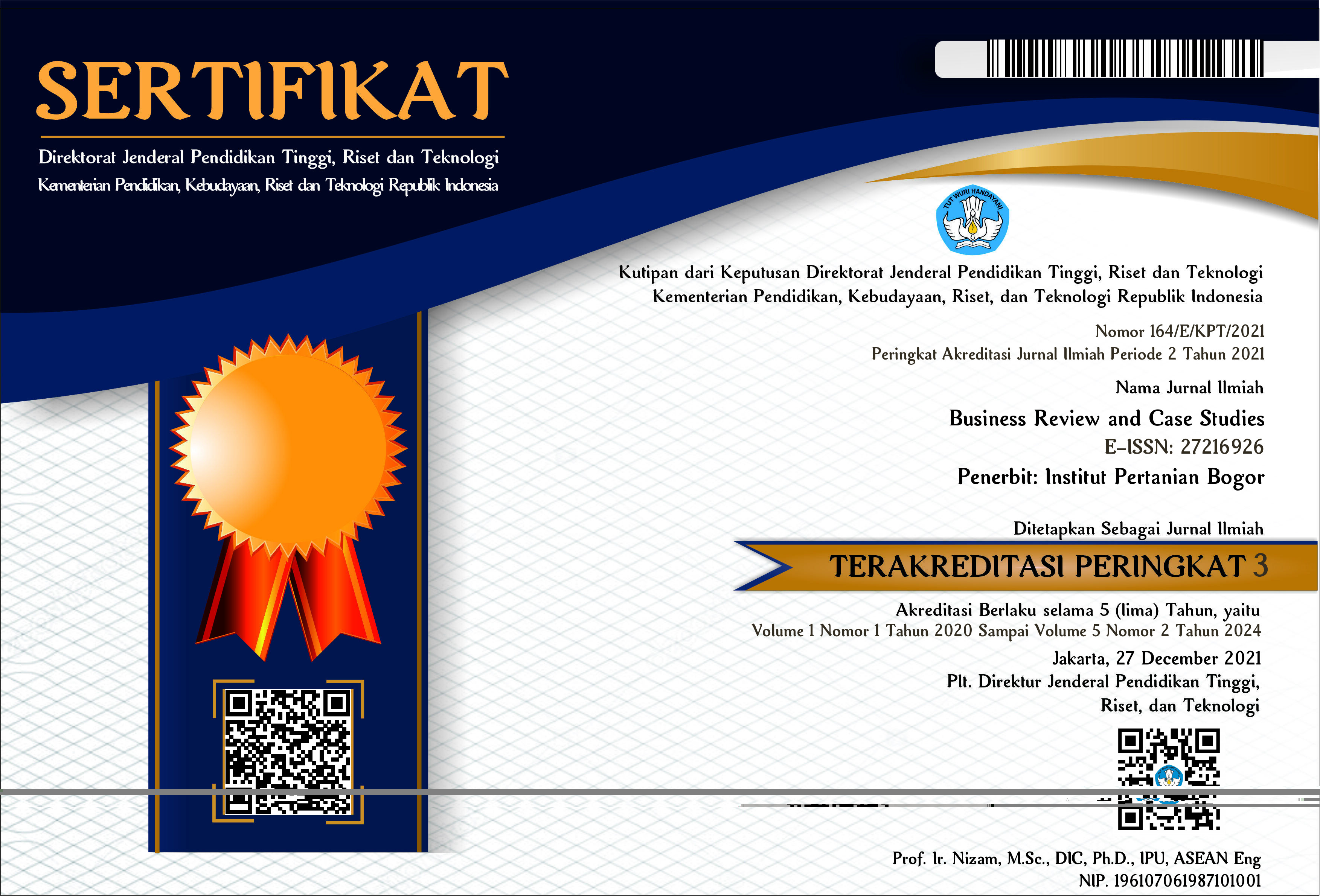The Impact of Islamic Work Ethic on Employee Performance The Role of Knowledge-Sharing Behavior in Indonesia's Fast-Food Companies
Abstract
Background: Studying the impact of Islamic work ethics on knowledge-sharing behavior and employee performance is intriguing since ethics play a crucial role in shaping the company's core values.
Purpose: This research examined the impact of Islamic work ethic (IWE) on knowledge-sharing behavior (KSB) and employee performance (EP). Considering the importance of knowledge exchange on employee performance, the external validity of the IWE concept was addressed to examine the mediating effect of knowledge-sharing behaviors on employee performance.
Design/methodology/approach: Valid questionnaires (132 respondents) were analyzed using Partial Least Squares Structural Equation Modeling (PLS-SEM) to examine a comprehensive organizational situation. This research also collects views from organizational behavior and performance experts to enrich the discussion regarding how Islamic work ethics influence employee performance and knowledge-sharing.
Findings/results: Analysis using Structural Equation Modeling-Partial Least Square (SEM-PLS) found that Islamic work ethics influence the attitudes and behavior of employees at fast-food companies in Indonesia. In general, Islamic work ethics greatly influences employee performance and knowledge-sharing behavior. However, Islamic work ethics have a more significant influence than knowledge-sharing behavior in influencing employee performance.
Conclusion: Managers who wish to improve the attitudes and behavior of their employees are strongly advised to prioritize the concept of Islamic work ethics in the workplace. Implementing this concept is beneficial in knowledge-sharing behavior for better employee performance, ultimately increasing organizational effectiveness and efficiency.
Originality/value (State of the art): This research contributes to the knowledge of how Islamic work ethics predict employee performance and knowledge-sharing behavior and examines the mediating effect of knowledge-sharing behavior influencing employee performance.
Keywords: Islamic work ethic, knowledge-sharing behavior, employee performance, fast-food company, Structural Equation Modeling.







.jpg)






